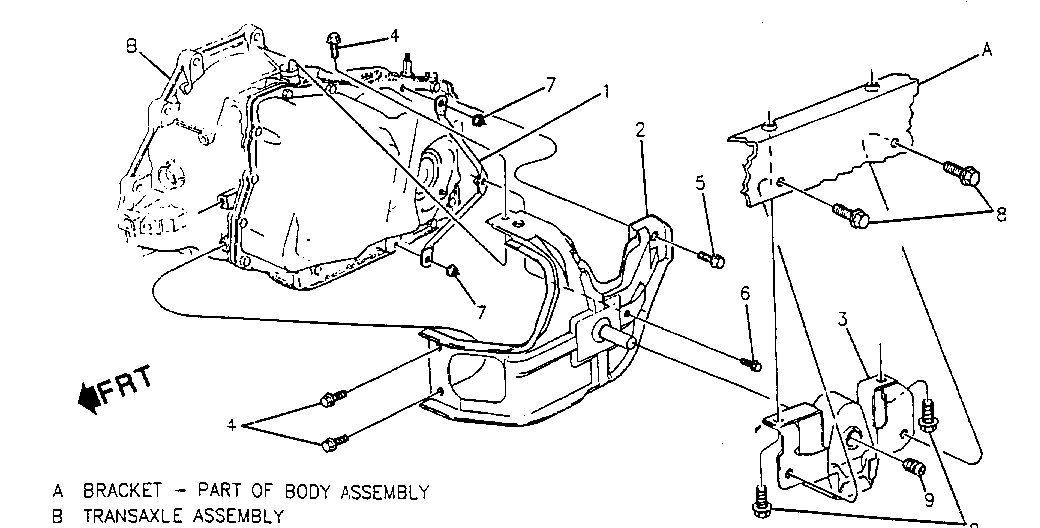CLUNK NOISE FROM DRIVER'S SIDE ON TURNS (CHECK TORQUE)

SUBJECT: CLUNK NOISE FROM DRIVER'S SIDE ON TURNS (CHECK TORQUE OF TRANSAXLE MOUNT PIPE EXPANSION BOLT)
MODELS AFFECTED: 1992-93 SKYLARK
CONDITION:
--------- Some 1992-93 Skylarks may have a clunking noise coming from the driver's side of the car on turns. This noise can be misdiagnosed as a suspension clunk noise.
CAUSE:
----- The pipe expansion bolt in the transaxle support assembly may not be tightened to specifications. This could allow the transaxle support assembly to move slightly in the transaxle mount assembly which causes the noise.
CORRECTION:
---------- Check tightening specification of the pipe expansion bolt and tighten to specification if necessary.
SERVICE INFORMATION:
1. Raise and support vehicle, refer to SECTION OA in the respective 1992 or 1993 Skylark Service Manual.
2. Remove left front tire and wheel assembly.
NOTICE: The internal hex on the pipe expansion bolt on 1992 applications was not hardened. If an 8mm internal hex driver is not used or if excessive torque is applied, the internal hex can be damaged making removal difficult and may make it necessary to replace the transaxle support assembly and/or the pipe expansion plug.
3. Use an 8mm internal hex driver and remove the pipe expansion bolt.
4. Clean the threads in the transaxle support assembly and remove any metal shavings or other debris that will cause an incorrect torque reading.
5. Install and tighten pipe expansion bolt to 55 N.m (41 lbs. ft.).
6. Install left front tire and wheel assembly and tighten wheel nuts to specification, refer to SECTION 3E in the service manual.
7. Lower vehicle.
PARTS INFORMATION:
Replace the pipe expansion bolt only if necessary using p/n 22585159. This is an updated pipe expansion bolt that has a hardened internal hex.
Parts are currently available from GMSPO.
WARRANTY INFORMATION:
Labor Operation No.: T1925
Labor Time: 0.4 Hour

General Motors bulletins are intended for use by professional technicians, not a "do-it-yourselfer". They are written to inform those technicians of conditions that may occur on some vehicles, or to provide information that could assist in the proper service of a vehicle. Properly trained technicians have the equipment, tools, safety instructions and know-how to do a job properly and safely. If a condition is described, do not assume that the bulletin applies to your vehicle, or that your vehicle will have that condition. See a General Motors dealer servicing your brand of General Motors vehicle for information on whether your vehicle may benefit from the information.
